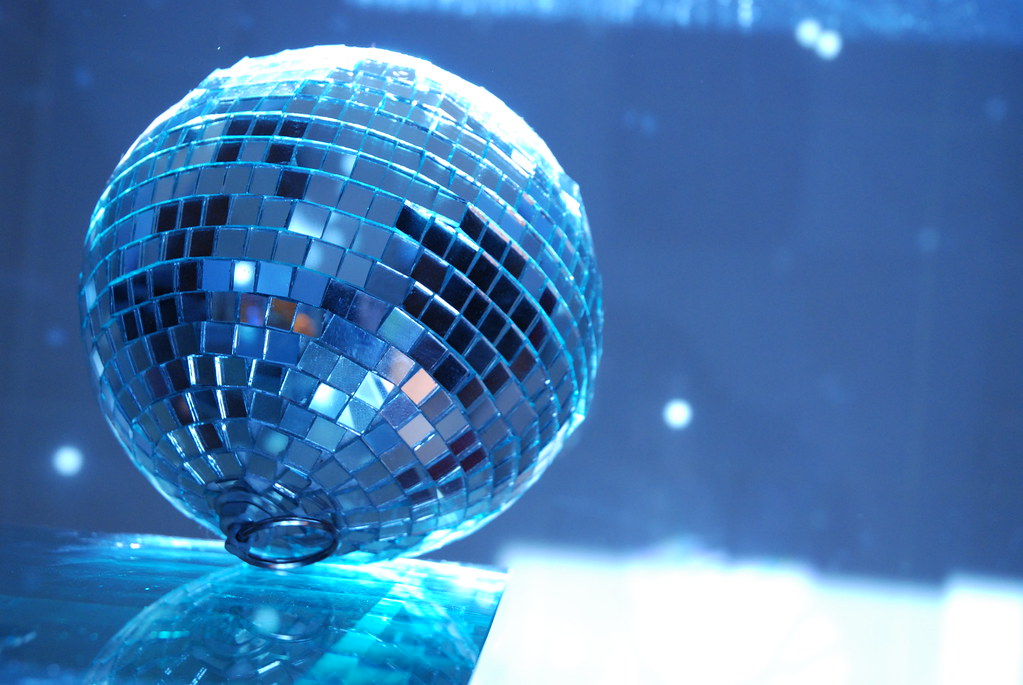
The other day I was in a used CD store and purchased the Saturday Night Fever soundtrack. Coincidentally, the soundtrack and the movie are both celebrating their 30th anniversary this year.
So, how do the soundtrack and movie hold up in 2007?
Pretty good. After all, you can still see many of the iconic images in today's pop culture. Most notably, Madonna's "Hung Up" video harkened back to the film when she donned her much-discussed purple leotard; she also donned John Travolta's white suit when she performed her hit "Music", set to "Disco Inferno", from the SNF soundtrack during her 2006 Confessions tour.
Firstly, the film. Anyone expecting Saturday Night Fever to be a feel-good dance movie will be disappointed. What has always struck me while watching SNF is how dark it is. John Travolta plays Tony, a young Italian man growing up in Brooklyn. Tony's life seems to revolve around working in the local paint store, hanging out with his boorish friends and dancing at the local disco. Dancing is a talent Tony displays at 2001 Odyssey, but Tony isn't quite sure what to do with his talent. He definitely has aspirations to leave Brooklyn, but he's not quite sure how to find his way out. Tony begins to fall for Stephanie (Karen Lynn Gorney), also from Brooklyn but who now lives in Manhattan, a place where Tony aspires to reside. Tony is drawn to both Stephanie and her dancing, and decides to enter into a dancing contest with her at 2001 Odyssey, despite having already promised to dance with Annette (Donna Pescow), a bubbly, voluptuous dancer who harbours a long-lingering crush on Tony. To Tony, Stephanie represents the class and sophistication he aspires to but cannot find in Brooklyn, his friends, or Annette.
The story of SNF would make it seem like a romantic dance movie, but it's actually a character study of a youth struggling to find himself in a sexist and racist community. Tony and his friends may be out of school, but still behave immaturely, perhaps because they lack ambition or drive. Homophobia is rampant throughout the film, and racial slurs are abundant. Footloose this is not. It is rather grim, with a suicidal character and a shocking rape scene. In the age of Step Up, You Got Served, and Stomp the Yard, SNF will undoubtedly come across as a depressing dance film.
Travolta is excellent as Tony, making him charismatic and sympathetic even when he acts like a louse. It's easy to see why this film made him a movie star (and won him an Academy Award nomination). But Pescow is definitely the scene-stealer in SNF. Why this film didn't lead to bigger success for her is a mystery. She's wonderful as Annette, and she's a far superior dancer (and actress) than Gorney. This is definitely one of the weaknesses of the film - why Tony would drop Annette, who is obviously the better dancer, for Stephanie in the dance contest, is a flaw in the storytelling. Gorney is hardly an adequate dancer, and she's lucky that Travolta carries their dance scenes together. Travolta and Pescow have much better chemistry together.
One of the strongest virtues of the film is its music. The soundtrack to Saturday Night Fever sounds as fresh as ever, thanks to the many Bee Gees hits sprinkled throughout. The film used some older Bee Gees hits ("Jive Talkin'", "You Should Be Dancing") and the Brothers Gibb produced some new songs for the film, "Stayin' Alive", "Night Fever" and "How Deep is Your Love", all of which became massive hits and part of music history. These songs have not aged a bit and sound as good as ever. They were overplayed to death on radio in the late '70s, so much so that when the Disco Kills movement kicked in in 1979, the Bee Gees were its first victim. I've always had trouble classifying the Bee Gees, and particularly their SNF hits as "disco". To me, they sound more like pop songs with a slice of R&B rather than disco, but most people associate them with the genre that took radio (and dancefloors) by storm in the mid-to-late '70s.
Most people remember the soundtrack for the Bee Gees songs, but SNF also featured songs by other performers, most notably Boogie Shoes by the K.C. and the Sunshine Band and the full length version of Disco Inferno by The Trammps. The rest of the album is still pretty good, but nothing can top those Bee Gees classics.
It's ironic that the soundtrack to SNF is uplifting, but the film is definitely not. Perhaps that's why this music is in the film -- the music that Tony longs to dance to on the dancefloor is the only joy he has in his life. And the music of Saturday Night Fever definitely brings lots of joy.
No comments:
Post a Comment